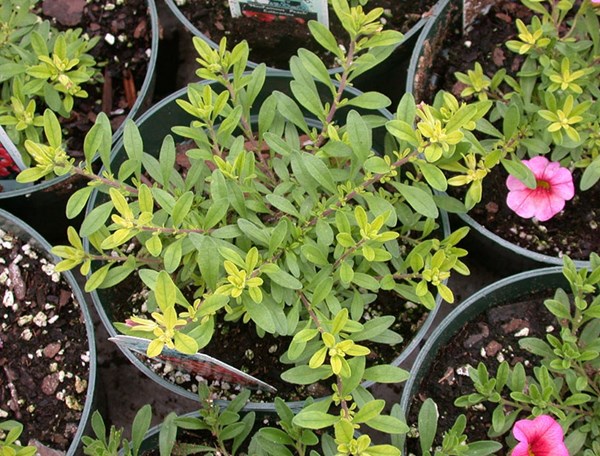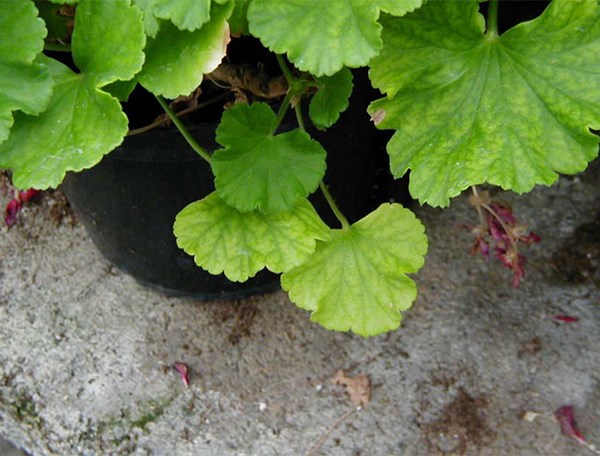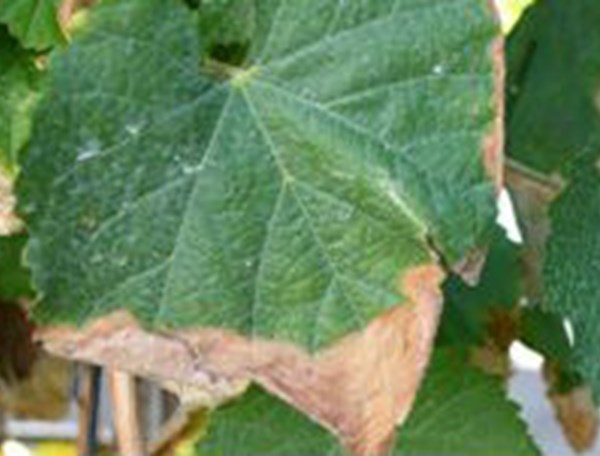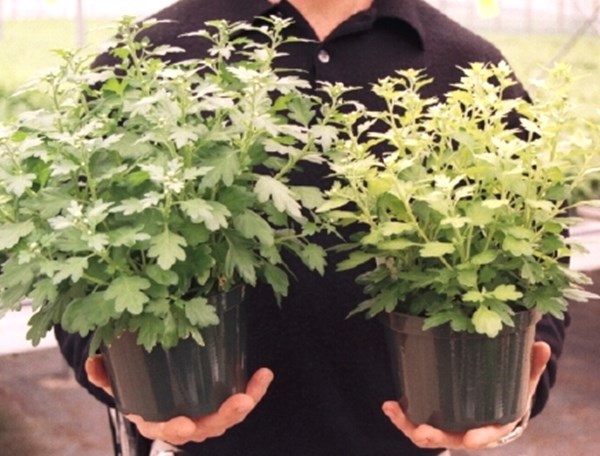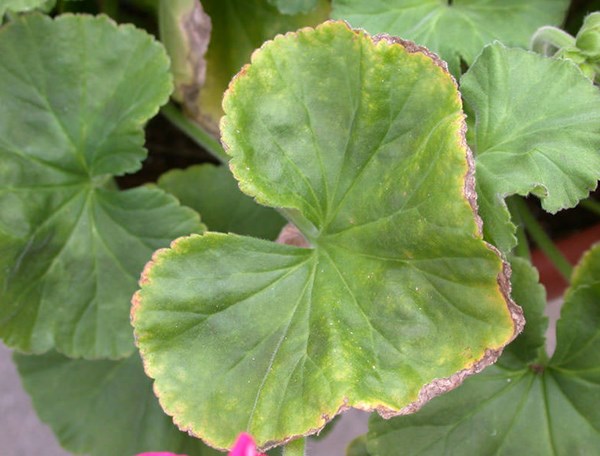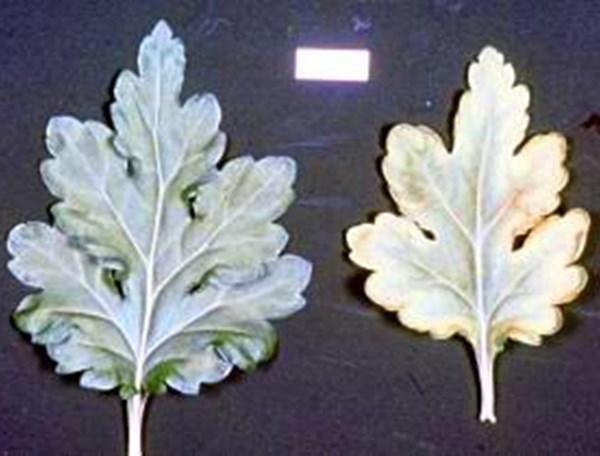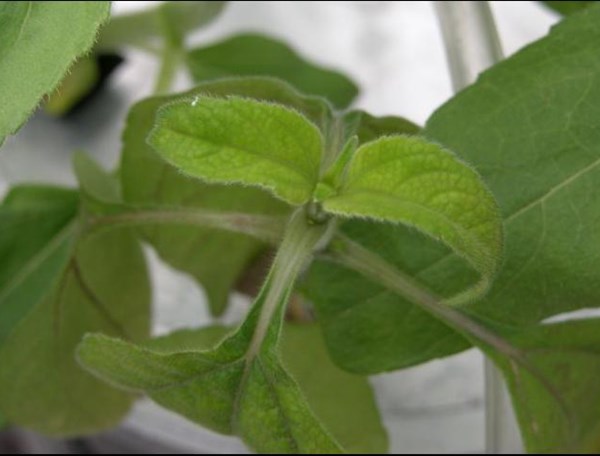Training Center
Role of Calcium in Plant Culture
Thursday, September 7, 2023 | Troy Buechel
Along with magnesium and sulfur, calcium is one of the three secondary macronutrients. Like the primary macronutrients (nitrogen, phosphorus, and potassium), these elements are also essential for healthy plant growth, granted in slightly lesser amounts.
Functions of Calcium
Calcium, in the form of calcium pectate, is responsible for contributing to the building of cell walls in plants. When calcium is deficient, new tissue such as root tips, young leaves, and shoot tips often have improper cell wall formation causing visual distortion in new growth. Calcium is also used in activating certain enzymes and sending signals that coordinate certain cellular activities.
Calcium Deficiency
Calcium is not mobile within the plant. Therefore, the plant relies on the process of transpiration in which the plant roots take up the soil solution (which should include needed calcium), transports it to new growth where the calcium is used and the excess water vapor escapes through holes in the leaves called stomata. Anything that slows transpiration, such as high humidity or cold temperatures, can induce calcium deficiency even if the calcium levels are normal in the growing medium.
Parts of the plant that transpire little water, i.e., young leaves and fruit, will display calcium deficiencies first. Blossom end rot of tomatoes is a classic case of calcium deficiency. Calcium deficiency can arise if levels in the fertilizer solution are less than 40-60 ppm and/or potassium, magnesium, or sodium levels are too high.
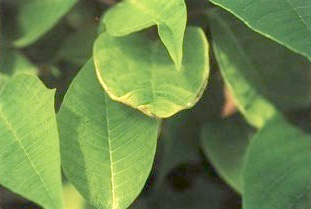
Calcium deficiency causing leaf edge necrosis in poinsettias.

Calcium deficiency causing bract edge burn.
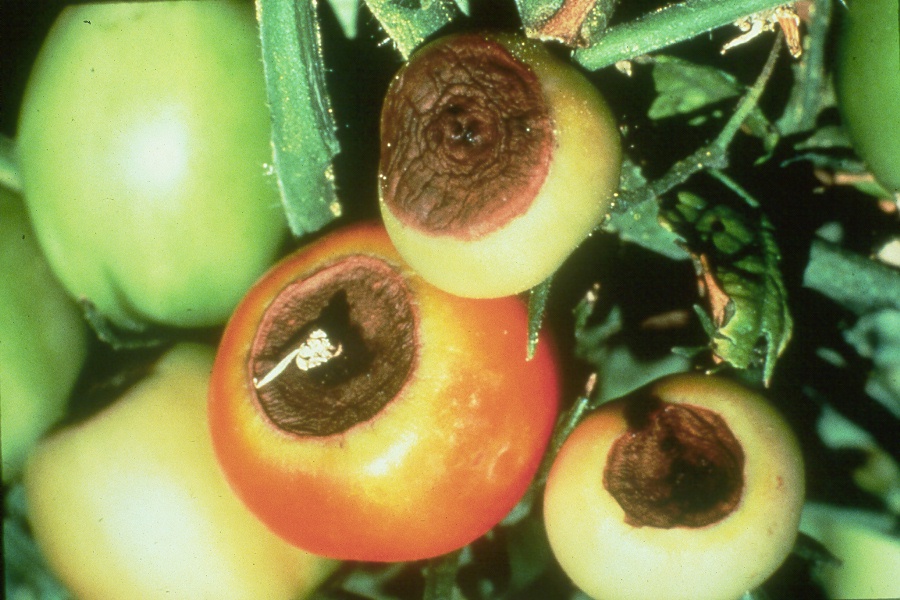
Calcium deficiency causing blossom end rot of tomatoes.
Calcium Toxicity
Calcium toxicity rarely occurs. High levels of calcium can compete with magnesium and potassium uptake, causing their deficiencies.
Calcium Source - Fertilizer
Most fertilizers do not contain calcium, so it is important to read the label. Some fertilizers list the percentage of calcium and magnesium in the fertilizer analysis, e.g. 15-7-14-3Ca-1Mg, while others are identified as a “Cal-Mag”, calcium-magnesium containing fertilizer such as 15-5-15, 17-5-17, etc. If you are not certain that a fertilizer contains calcium, check the “guaranteed analysis” on the fertilizer label as it lists the percentage of each element in the fertilizer.
Most calcium-containing fertilizers are formulated with calcium nitrate. Keep in mind that calcium nitrate is potentially basic, meaning it will cause the pH of the growing medium to rise unless acid is injected, or potentially acidic fertilizers are used in rotation.
Calcium Source - Water
All water sources supply some calcium. As a rule, water coming from deep wells or most non-coastal regions of North America have sufficient calcium for normal crop growth. However, water from a shallow well, coastal region, rain, lake, river, or pond generally has insufficient calcium levels.
Regardless, it is best to have your water tested to verify if your water is supplying sufficient calcium. If the calcium level in your water is 40-60 ppm or more, then there is little need to use a fertilizer that provides calcium.
If calcium levels in your water are less than 40-60 ppm calcium, talk with your Premier Tech Grower Services representative and together, a customized fertilization program can be developed to fit your specific crop’s needs.
 |
 |
 |
 |
|---|---|---|---|
|
Ed Bloodnick |
Nathan Wallace-Springer |
Lance Lawson |
Victor Brantly |
 |
 |
 |
|
|
Troy Buechel |
Susan Parent |
Jose Chen Lopez |
PRO-MIX® is a registered trademark of PREMIER HORTICULTURE Ltd.
Related Articles
-
This article will help you better understand the role of iron in your plant culture.
-
Role of Magnesium in Plant Culture
Do your plants have a deficiency or a toxicity related to magnesium? This article will help you better control this secondary nutrient.
-
Role of Sodium and Chloride in Plant Culture
This article will help you better understand the role of sodium and chloride in your plant culture.
-
Role of Sulfur in Plant Culture
This article will help you better understand the role of sulfur in your plant culture.
-
Role of Manganese in Plant Culture
Do your plants have a deficiency or a toxicity related to manganese? This article will help you better control this micronutrient.
-
Role of Copper in Plant Culture
This article will help you better understand the role of copper in your plant culture.
-
This article will help you better understand the role of zinc in your plant culture.
-
Role of Nickel in Plant Culture
This article will help you better understand the role of nickel in your plant culture.


 Where to find our products
Where to find our products
